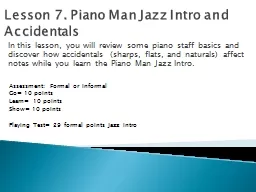PPT-The Internet You would learn about the basics of how the Internet works, how to effectively
Author : phoenixbristle | Published Date : 2020-08-06
Computer Networks Networks can of course be wired requires physical connections or wireless Computers and now other devices such as mobile phones that are connected
Presentation Embed Code
Download Presentation
Download Presentation The PPT/PDF document "The Internet You would learn about the b..." is the property of its rightful owner. Permission is granted to download and print the materials on this website for personal, non-commercial use only, and to display it on your personal computer provided you do not modify the materials and that you retain all copyright notices contained in the materials. By downloading content from our website, you accept the terms of this agreement.
The Internet You would learn about the basics of how the Internet works, how to effectively: Transcript
Download Rules Of Document
"The Internet You would learn about the basics of how the Internet works, how to effectively"The content belongs to its owner. You may download and print it for personal use, without modification, and keep all copyright notices. By downloading, you agree to these terms.
Related Documents














